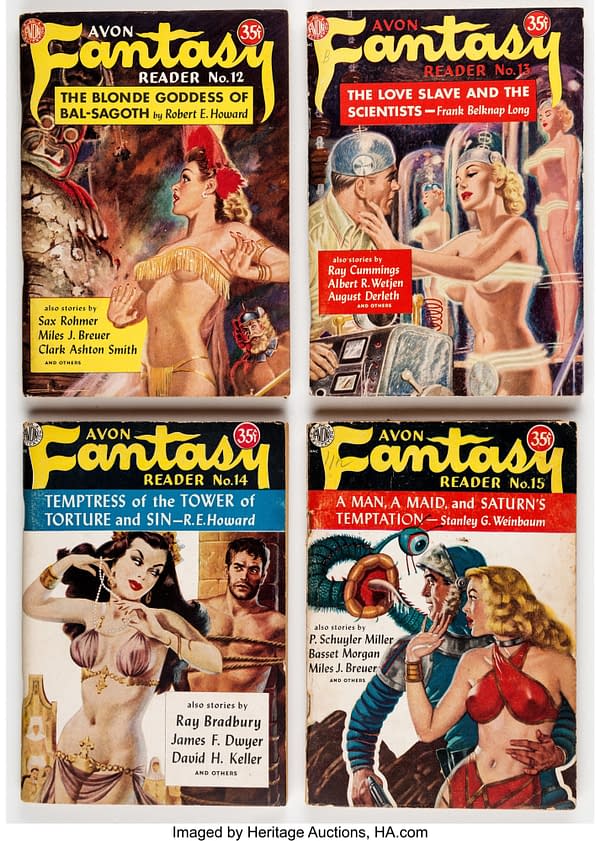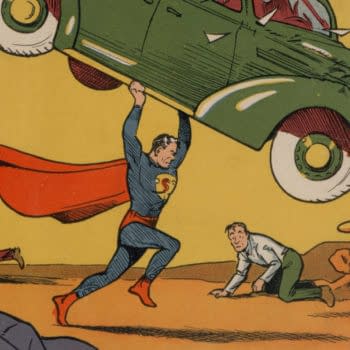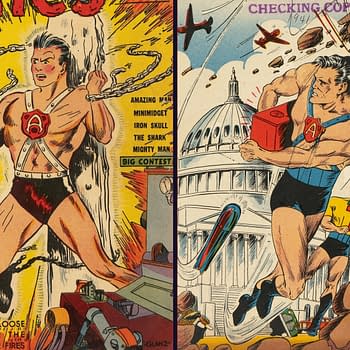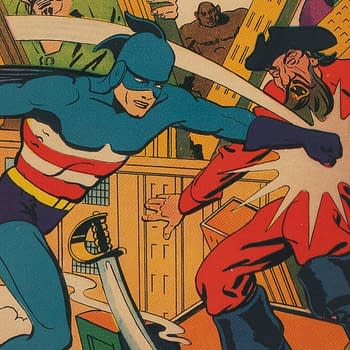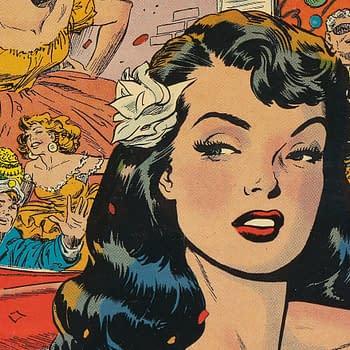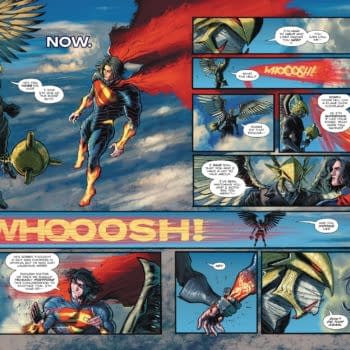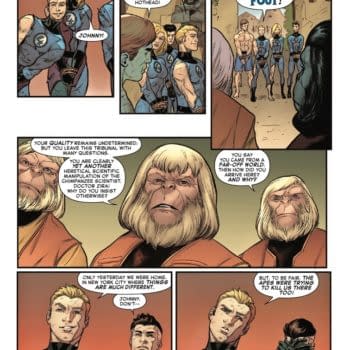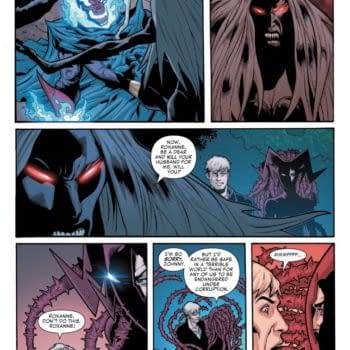Posted in: Comics, Vintage Paper | Tagged: Avon Publications, spicy history stories
Joseph Meyers and the Strange Origins of Avon Publications
Spicy History Stories #4: How a now-obscure publisher founded in 1868 became an important paperback, pulp and comic book publisher.
Article Summary
- Uncover the historical roots of Avon Publications, tracing back to J.S. Ogilvie's 1868 founding.
- Explore Joseph Meyers' transformation of J.S. Ogilvie into Avon, driven by innovation and legal battles.
- Understand Avon's rise in the paperback, pulp, and comic book markets, and its clashes with Pocket Books.
Best remembered as one of the early entrants in the American paperback market in the wake of Pocket Books' successful launch in 1939, the roots of Avon Publications trace an interesting path through the history of the cheap mass market collected and reprint edition format in America, with the company eventually branching out into comic books and pulps. Beginning in 1941, Avon's Joseph Meyers played a significant role in shaping that market. But the oldest thread of the company began decades before that under publisher John Stuart Ogilvie whose company was also largely remembered for reprinting and collecting fiction from other sources. Best known as J.S. Ogilvie Publishing Company or J.S. Ogilvie & Co., that company began in 1868.
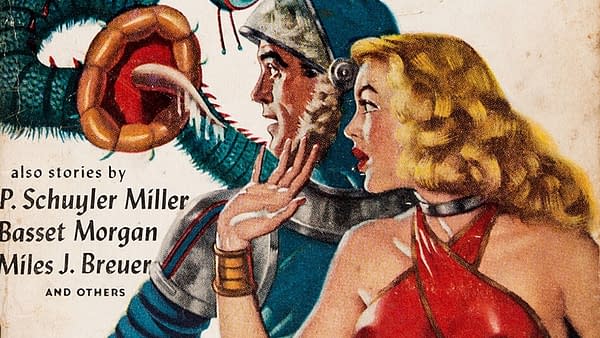
Welcome to Spicy History Stories #4, the fourth installment of a weekly column about pulp magazine history that we're launching to coincide with the debut of Heritage Auction's weekly pulp magazine auctions. Unlike other auction-centric posts we've done here, this column is not necessarily designed to be closely tied to any particular items up for auction. Mostly, it's this: if you enjoy the nerdy details of comic book history, you're going to love the astounding (and yes, sometimes weird) history of the people and companies that made the pulps.
With Street, Without Smith
Sometime prior to 1880, Francis S. Street of the legendary Street & Smith publishing company became a partner in Ogilvie's firm. In 1880, Ogilvie entered into an agreement with Street & Smith to exclusively collect and reprint Street & Smith material in a series called People's Library. This arrangement had fallen apart due to royalty disputes by the end of the 1880s, with Street & Smith going on to successfully publish their own reprint collections and also becoming one of America's most successful "thick book" publishers, a format which is for all practical purposes the kind of standard paperback format we're familiar with today.
J.S. Ogilvie & Co continued on with their own thick book (among other formats) releases using other source material. After John Stuart Ogilvie's 1910 death, the firm passed onto his sons Donald and Frank, who seem to have remained in charge of the company until their own deaths in 1936 and 1937 respectively. By this time, the company maintained a back catalog of self-help, "home study" and a dizzying array of other non-fiction and fiction titles in clothbound and various formats of softcover editions with a heavy mail-order sales presence.
At this point, the company came under the control of Joseph Meyers and his sister Edna Meyers Williams. By some accounts, American News Co. subsequently helped fund Meyers' 1941 transformation of J.S. Ogilvie into the paperback publisher Avon. As Two-Bit Culture: The Paperbacking of America describes it, American News Co. set about finding a competitor for Pocket Books after getting shut out of Pocket Books' decision to go with independent distribution rather than ANC. However, the indispensable The Paperbound Book in America describes Pocket Books' decision to go independent as the result of a lack of cooperation on ANC's part.
Meyers and Williams had run publishing businesses beginning around 1928 with Illustrated Editions Company and related companies. According to Meyers' 1943 testimony in Pocket Books v Avon, he had been in the book business in some form since 1923. While one source maintains he was an employee of J.S. Ogilvie during that period, his testimony during that lawsuit has him running a retail bookshop and a mail-order book business prior to entering publishing. While it's possible that his mail-order business had some connection to J.S. Ogilvie's own operations in that area, there's no apparent reason for him to conceal any direct employment here. Prior employment with that firm would have likely further strengthened his defense against Pocket Books.
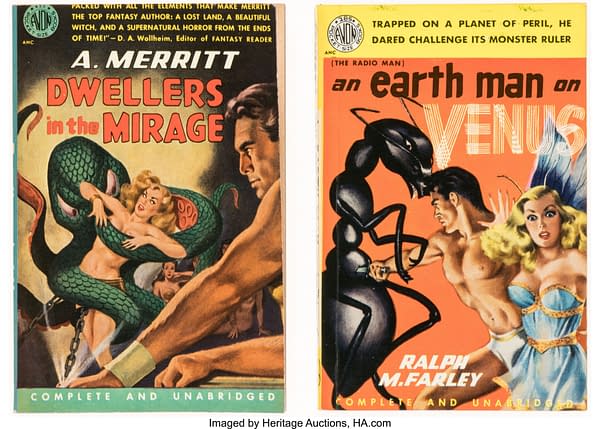
American News Co. or No?
There would seem to be a strong case to be made that American News Co. did not own equity in either J.S. Ogilvie or Avon and that if they did help Meyers and Williams during this process, at best, it may have been in the form of financing. One of the few contemporary accounts of this process appeared in the Kansas City Star in 1942, which noted, "Meyers is chiefly a book designer with more than twenty years' experience in the reprint business. As coproprietor with Edna B. Williams of Illustrated Editions Company, Meyers has specialized in elegantly bound classics at low prices — for instance, a gold-imprinted, stiff-covered edition of 'Oliver Twist' for 49 cents. He designed a special series of thirteen 98-cent classics for Macy's in 1936. The same year, he and Mrs. Williams bought the J. S. Ogilvie Publications. Ogilvie had been in the 25-cent book business for years, supplying railroad stations and newsstands with paper-bound copyrighted reprints and such plebeian classics as 'The Adventures of Buffalo Bill.' Meyers planned to bring the Ogilvie list and format up to date."
In trade industry accounts from the later 1950s, Avon business manager Maurice Diamond was described as a co-founder and co-owner of the company. For a time during that later period, Meyer, Diamond, and Harry Rebell were listed as co-owners of the firm. According to a 1969 Federal Trade Commission Ruling regarding the acquisition of Avon by Hearst, at the time of Joseph Meyers' death, he owned 85% of the firm, while Rebell owned 15%.
This said, some degree of American News Co. involvement in the Ogilvie/Avon scenario is not outside the realm of possibility, as acquiring the J.S. Ogilvie IP for use in a rival to Pocket Books would prove to be a tactical masterstroke. When Pocket Books sued Avon for unfair competition, claiming the Avon line was too similar to the look and feel of Pocket Books, Avon's defense repeatedly fired back with examples from J.S. Ogilvie's decades-long use of the highly similar thick book format. Avon's lawyer returned again and again to specific examples from throughout that history which had various prior characteristics similar to Pocket Books' claims. And though this irony was lost on those in the courtroom, the defense also used examples from one-time J.S. Ogilvie business partner Street & Smith, including their use of the term "Pocket Edition."
Avon successfully defended itself in this action, but whatever role ANC might have played in this scenario, the resulting distribution arrangement would soon become frayed. From 1953 to 1956, Avon and ANC would engage in a series of lawsuits over Avon's use of the separate corporate entity Avon Book Sales Corporation in what ANC construed as an end run around their exclusive distribution contract.
Along the way, Avon published over 100 comic book titles from 1945 to 1956, most of them extremely short-lived. Avon Books also sporadically published paperback format collections of newspaper comics and similar material throughout that period and continued to do so through the mid-1990s. Avon entered the pulp market in 1947 with Avon Fantasy Reader and Avon Western Reader, later adding titles including Avon Science Fiction Reader, Out Of This World, and 10-Story Fantasy.
Joseph Meyers died in Los Angeles on November 2, 1957. He had come to Hollywood to negotiate a deal to publish a book based on the screenplay of Roger Corman's The Cry Baby Killer, best remembered as Jack Nicholson's first feature film. The company was acquired by Hearst in 1959 and is currently a romance imprint of HarperCollins, where it has been active through at least 2019.
